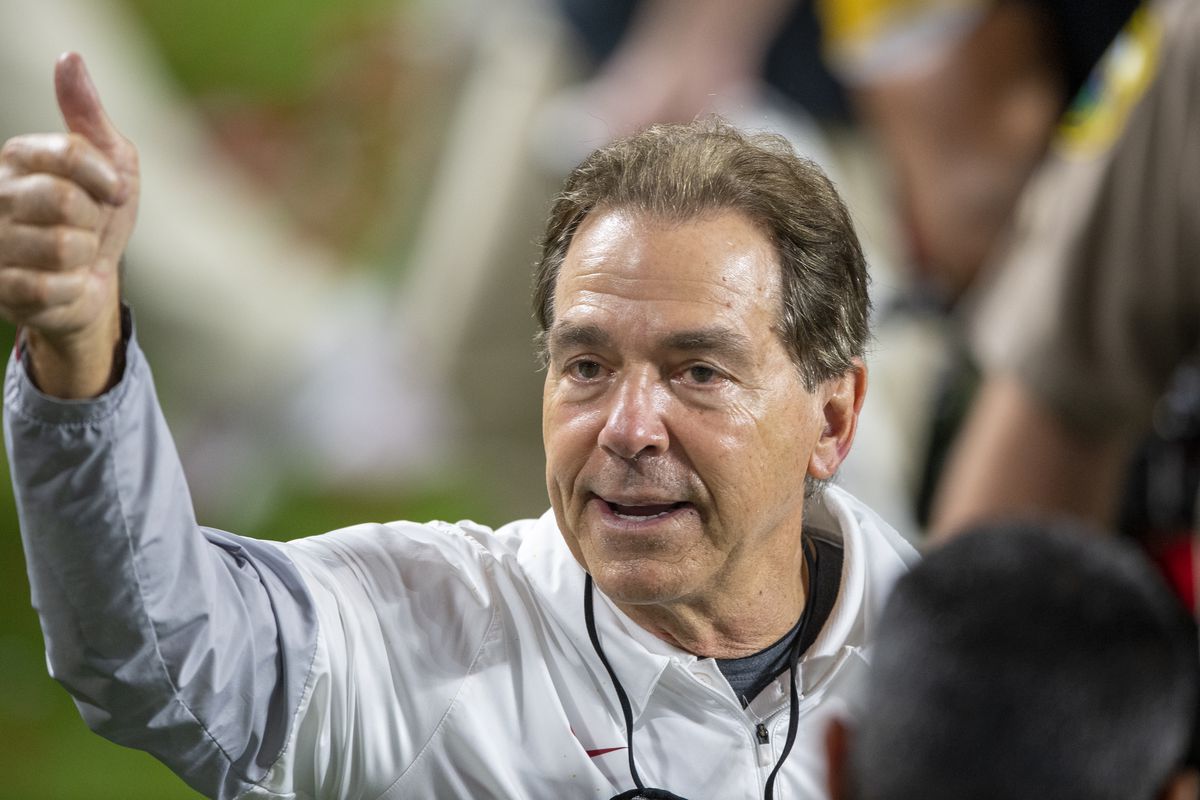In a move that could reshape the landscape of college athletics, legendary Alabama coach Nick Saban has called on President Donald Trump to take federal action on the regulation of name, image, and likeness (NIL) deals.
Saban’s appeal came during Trump’s visit to the University of Alabama, where the former president delivered the commencement address.
According to multiple reports, Saban used his time with Trump to lobby for an executive order that would “reform” NIL, not eliminate it, but ensure a more level playing field across college sports.
Saban has long argued that the current NIL system, which allows athletes to profit from endorsements and personal branding, has created an arms race among powerhouse programs, resulting in a widening gap between rich and less-resourced schools.
“I think that [NIL] should still exist for all players, but not just a pay-for-play system like we have now where whoever raises the most money in their collective can pay the most for the players, which is not a level playing field,” Saban said last year. “I think in any competitive venue, you want to have some guidelines that give everyone an equal opportunity to have a chance to be successful.”

Reportedly receptive to Saban’s concerns, Trump told aides to begin studying what an executive order could look like, signaling a willingness to intervene at the federal level. The move comes as the NCAA faces mounting legal and financial pressures to modernize athlete compensation, with new rules and settlements expected to take effect this summer.
Implications for HBCUs
The then-Alabama head coach, in a lengthy rant about the ills of NIL, suggested Jackson State and Deion Sanders lured top recruit, Travis Hunter, to the school on the strength of a million-dollar NIL deal
“Jackson State paid a guy $1 million last year who was a really good Division I player to come to their school,” said Saban. “It was in the paper, and they bragged about it. No one did anything about it. These guys at Miami that are going to play basketball there for $400,000; it’s in the newspaper. The guy tells you how he’s doing it. But the NCAA can’t enforce their rules because it’s not against the law, and that’s an issue. That’s a problem. Unless we got something that protects them from litigation, I don’t know what we’re going to do about it.”
Sanders previously shot down speculation that Hunter only committed to Jackson State on the strength of a rumored seven-figure NIL deal with Barstool Sports.
“That’s the biggest lie I ever heard,” he said after Hunter committed to Jackson State. “That means we kicked your butt, and we took what’s ours and you have to make up an excuse why. I wouldn’t pay my son a million and a half. How am I gonna coach a guy making more than me?”
The stakes are particularly high for HBCUs. While NIL has brought new opportunities for student-athletes at these institutions, offering chances to learn about entrepreneurship and personal branding, the influx of money has largely favored larger, wealthier programs.

HBCUs, which often operate with smaller budgets and fewer resources, risk falling further behind in recruiting and retaining top talent if disparities continue to grow.
Recent NCAA rule changes, including proposals to allow direct payments to athletes and create a $20.5 million annual benefits cap for 2025-26, could further strain HBCUs’ finances and administrative capacity.
Many HBCU leaders have already called on Congress to consider their schools’ unique challenges, warning that some proposed legislation could force them to dismantle parts of their athletic programs.
Conference commissioners of the CIAA, MEAC, SIAC and SWAC previously sent a letter to the Congressional Black Caucus to investigate how NIL and athlete employment would affect Black colleges.
While some see NIL as a step toward economic justice for Black athletes, others caution that without federal standards and support, HBCUs may struggle to keep pace with Power Five schools that can offer more lucrative deals. If successful, Saban’s push for reform could bring about national guidelines that level the playing field, but the details will be critical. Overly restrictive regulations could limit opportunities for HBCU athletes, while too much freedom could widen the gap.








